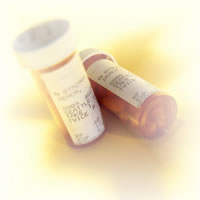
Buying prescription drugs via internetThe Internet has changed the way we live, work and shop. The growth of the Internet has made it possible to compare prices and buy products without ever leaving home. But when it comes to buying medicine online, it is important to be very careful. Some websites sell medicine that may not be safe to use and could put your health at risk. You have to talk with your doctor and have a physical exam before you get any new medicine for the first time. Use only medicine that has been prescribed by your doctor or another trusted professional. Make sure the site requires a prescription and has a pharmacist available for questions.
Drug interactions: what you should knowThere are more opportunities today than ever before to learn about your health and to take better care of yourself. It is also more important than ever to know about the medicines you take. Drug interactions may make your drug less effective, cause unexpected side effects, or increase the action of a particular drug. Some drug interactions can even be harmful to you. Reading the label every time you use a nonprescription or prescription drug and taking the time to learn about drug interactions may be critical to your health. You can reduce the risk of potentially harmful drug interactions and side effects with a little bit of knowledge and common sense. Early in a drug's development, companies conduct research to detect or predict potential interactions between drugs. Experts evaluate the drug-interaction studies as part of assessing a drug's safety. Mixing two drugs together could make one of the drugs ineffective. The combination also could increase a drug's effect, and be harmful. The result might be mild symptoms such as nausea, stomach upset, or headache, or more serious symptoms such as a dramatic drop in blood pressure, irregular heart beat, or damage to the liver-the primary way that drugs pass through the human body. A drug may affect these enzymes by inhibiting them, which causes reduced activity of the enzyme and a buildup of the drug in the body. Or drugs may "induce" the enzymes, which causes increased activity of the enzyme and a reduction of the drug in the body. It used to be that the only way to test for drug interactions was in people. Now drug companies can take five test tubes with the five major pathways for metabolism and put their drugs in to see whether it's metabolized by CYP450. This allows to generate a list of possible interactions based on their findings. Not everything that happens in a test tube will become meaningful in humans, though. Results from these test-tube studies can tell us whether need to do further testing in people to find out if an interaction is clinically significant. Three phases of clinical trials in humans must happen before a drug can be marketed. Phase 1 studies focus on a drug's side effects and how the drug is metabolized and eliminated from the body. Phase 2 studies focus on a drug's effectiveness. And Phase 3 studies gather more information on safety and effectiveness, which includes using the drug in combination with other drugs. Health professionals also use computer systems with drug-interaction screening software, electronic prescribing, and other technology. Mark Langdorf, M.D., chair of the department of emergency medicine at the University of California, Irvine, says, "In a busy emergency room, you have to quickly find out what a patient is taking and how those drugs could interact with other treatments." Drug interactions with other drugs includes both prescription and over-the-counter medicines. Tricyclic antidepressants such as Elavil (amitriptyline) and Pamelor (nortriptyline) can interfere with blood pressure-lowering Catapres (clonidine). Taking the antibiotic Cipro (ciprofloxacin) with antacids lowers Cipro's effectiveness. Examples of food with tyramine are cheese and soy sauce. Grapefruit juice should not be taken with certain blood pressure-lowering drugs or cyclosporine for the prevention of organ transplant rejection. Alcohol should not be taken with pain relievers such as Tylenol (acetaminophen) or ibuprofen because of the increased risk of liver damage or stomach bleeding.

|